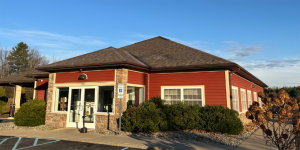New legislation pending in the New York State Assembly would set criminal penalties for foreclosure abuses such as robo-signing.
The legislation, titled the Foreclosure Fraud Prevention Act of 2012, is backed by Attorney General Eric Schneiderman. It was introduced by Brooklyn Democrat Helene Weinstein and referred to the Assembly Committee on Codes Monday.
The act would set up misdemeanor and felony penalties for employees who take part in business practices like robo-signing affidavits — claiming to have personal knowledge about mortgages and properties while not actually having that knowledge.
(Sponsored)

It’s Time for Your Business to Think About Year-End Tax Planning
As the year-end approaches, it’s time to take proactive steps to help lower your business’s taxes for 2024 and beyond. Deferring income and accelerating deductions to minimize taxes can be

Five Bookkeeping Mistakes That Could Be Costing Your Business Thousands
Proper bookkeeping is the financial backbone of any successful business. Yet for many small business owners, it’s often overlooked until something goes wrong, or a report is suddenly needed. Unfortunately,
“By treating foreclosure fraud as the serious crime that it is, we can deter future abuse and spare untold numbers of families the trauma of wrongful foreclosure,” Schneiderman said in a news release. “This legislation will ensure that employees involved in these fraudulent and abusive practices, and their supervisors who allow the misconduct to continue, will be held accountable for their crimes.”
If the act passes into law, it will make it a misdemeanor for employees of residential mortgage businesses to knowingly authorize, prepare, execute, or file false documents in a residential foreclosure. The maximum penalty for that infraction would be a year in jail and a $1,000 fine.
Employees committing multiple acts of foreclosure fraud would be charged with felonies punishable by a maximum of four years in prison. Any “high managerial agent” tolerating employees committing foreclosure fraud would also be committing felonies.
The bill is not currently scheduled for any votes. Its introduction follows a $130 million foreclosure abuse settlement with the country’s five largest mortgage servicers that Schneiderman announced in February. That state settlement was part of a larger combined federal and state settlement.
Contact Seltzer at rseltzer@cnybj.com


